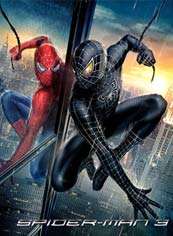Tonight’s national 6:30 pm time slot features a potentially wonderfully new kind of drama. This one has to do with the future, but there will be no voting, no calling in, and no consolation prize of an appearance on Leno or Letterman.
Tonight, “NBC News with Brian Williams” will feature two things that make this news program more of a cultural contribution and interesting entertainment. According to his blog , there are two items that will make the show worth watching:
First, there are limited commercial interruptions. By going with a single sponsor with marquis naming rights but less time for commercials, there is more time for the show. Second, the show will focus not just on the day’s negative headlines, but extra time will be given to what our world will look like in 2017: faceprint identity, fingerprint technology, and robotics; super schools and cyber homeschooling; cancer discerned by exhaling into a machine, and the bad news about the environment. There’s a little something for everyone.
I find this fascinating for people of faith, because the theme and inspiration of “the future” is consistent throughout the Bible. The nation of Israel sought the land filled with milk and honey. The centuries came and went based on the hope of the Messiah’s coming. Jesus painted a picture of His Kingdom. Paul gave details of how to organize until it’s coming. John’s apocalypse (The Revelation) gave hope to a persecuted church.
People of faith are concerned not only about how we feel today, but what tomorrow will look like as well. Perhaps Christians focus too much on how things will be in eternity and could use a reality check on where we’ll be in 10 years, and how we could and should prepare to bring God’s light to it.
Culturally speaking, I hope tonight’s show catches on and more shows like it are launched. We don’t get to phone or text in a vote on the future, but perhaps this will give rise to a new kind of “interactive TV,” as it inspires (or exhorts?) us to vote and shape the future with our time, talents, todays and tomorrows.


